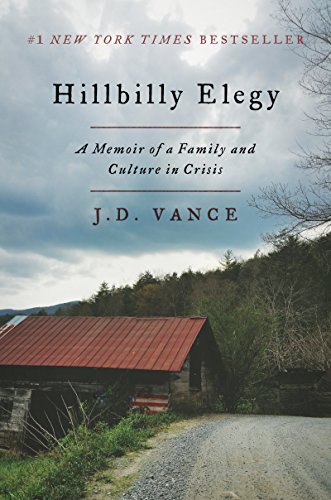I watch so few movies, that one I saw forty-three years ago still stands out as a life experience. This was Deliverance, from the novel by James Dickey (which I have never read). Some details fade; the most abhorrent stay with me. I did not like the movie.
From the dueling-banjo scene with an inbred, autistic boy, to the depiction of sodomic rape, and kill-or-be-killed above a high river gorge, it was a draining experience. The movie was portentous throughout. The “city boys” on their weekend wilderness adventure prevail over the “mountain men” they encounter, because they have brains, which, apparently, the savages lack. Paradoxically, the recurve bow of the city sportsman prevails over hillbilly shotgun.
One resists being assaulted by a “message” – which to me, even at age twenty, rang false. What stayed with me was the obscenity, not of the notorious male rape scene, but of the way the hicks in the movie were “othered.” They were openly dehumanized. Bears in the forest would have been presented with more sympathy.
But the movie-going public bought in; the production thrived at the box office, and I gather is now hailed as a classic of “the cinema.” Apparently, it scores a remarkable 93 percent “fresh” on the Rotten Tomatoes website, which aggregates critical appraisal. Through intervening decades, it seems, the impressionable public have remained impressed.
For as long as I can remember, malice towards America’s “white trash” has been socially acceptable. Humans being what we are, it has usually taken the form of transference. Malice is the quality projected upon them, by sophisticates of both Left and Right.
It is worth studying the tone of current media depictions of “Trump supporters,” to gain an insight into the prejudices once directed, quite unselfconsciously, towards poor “African Americans,” and “Native Americans” – now protected behind the euphemistic walls of political correctness.
But you can still say what you want about the white trash, and their failure to embrace the “American dream,” or otherwise flourish. Though perhaps for not much longer.
The statisticians define them as those who lack college degrees. This yields a crop of about 60 million, which, in the fevered liberal imagination, will support Trump out of sheer malice and stupidity. Presumably, they are attracted to the candidacy of this New York City real estate tycoon because he is coarse, and loud-mouthed against the very people and things they most spontaneously detest.

My own view happens to coincide with that of J.D. Vance, author of Hillbilly Elegy: A Memoir of a Family and Culture in Crisis. This book is beginning to turn some heads, because it has been written brilliantly across the various political front lines. Vance – whose personal trajectory was through Yale to Silicon Valley, from a White Loser start in obscure rural Ohio – despises Trump and his populist, demagogic appeal.
I think Trump would do for unemployed, blue-collar American whites, what Obama has done for the ghetto blacks: make their position considerably worse, within a society more fatally divided.
What Vance has done is to attract some empathy to the plight of an American ethnic class corresponding to old Appalachia, and the descendants of sharecroppers from the old South. It is a necessarily complex, and fascinating history of the Scots-Irish, poor English, and half-breeds who retreated from the settled society of the Eastern Seaboard as soon as they could – often directly into the hills from the immigrant boats that carried them here, now centuries ago. (Many came from the hills of Europe.)
Non-beneficiaries of the lowland networking arrangements, often unacquainted with developments in agriculture and industry, and bound together by music, tribal custom, and eccentric religion, their resentment of an alien modern world was polished when it came to its seeking resources, and putting them to work digging coal, and eventually in the unskilled factory jobs that technological progress has now kicked away.
They are left displaced, even within their own traditional territories, detached from their traditional culture, unemployed and unemployable, their children predeceasing them in extraordinary numbers through easily available opiates, and despair. And, as in past time, they draw into their ranks the “refuse” of other cultures, defeated in the competition of modern life – producing, as it were, a new generation of “half-breeds” as their ancestors once assimilated stranded Cherokee, and runaway slaves.
In the statistical, sociological manner, Charles Murray and colleagues have documented the fate of “Fishtown” – in contrast with the “Belmont” of the monied and socially stable. The inhabitants of Fishtown no longer go to church, indeed have no churches. They do not marry, because family and respectability are not required of them. They have no jobs, because there are none anywhere near where they live.
Only the heroic and unusual among them – Vance is an exceptional example – get anywhere in life. As he admits, he did so by going far away from his own people, and abandoning their habits. Yet he tries to stay in touch, and more completely understand what has happened to them, remaining tied to his own ancestral past through love.
The deadbeat Irish were once in their position, as immigrants to North America slums, from two centuries ago. Drunk, paganized, bathed in illegitimacy, they became a project for the American Catholic Church, in its nineteenth-century proselytizing zeal. The priests somehow achieved what social workers have always funked: pulling them up by their own bootstraps.
When we speak of the New Evangelism, I think of the hopeless among the poor of all races, including the progeny of Appalachia. There are human tasks so impossibly hard that only Christ is equal to them.
The secret of recovery (“deliverance”) has never been, and will never be, government programs. At its heart is the human experience of conversion. It is the man, or woman, suddenly awakened to Love in all of its mysterious dimensions, who sees a way forward where all paths seemed closed.















